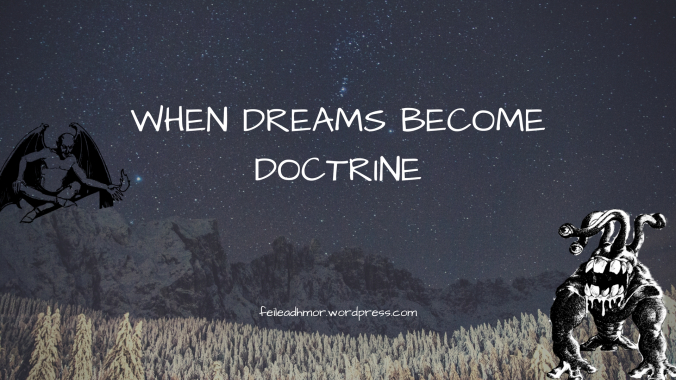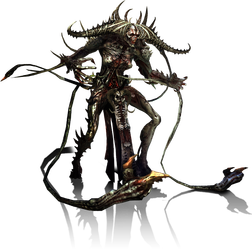Furthermore, the
Hebrews 6 doesn't affirm that position. Saint Paul(or whoever who wrote Hebrews) makes it clear that those that were "once enlightened can lose the true faith. This is in the beginning chapters of Hebrews 6. I would also like to quote what I stated before in order for people to be aware of what I stated.
Are you suggesting "once enlightened" is the same as salvation? Even in the Catholic sense that wouldn't be a correct understanding of salvation.
So in Matthew 13, Jesus with large crowds gathered around him speaks in parables. He talks in Matthew 13:3-9 about the Parable of the Sower which you can read. The rest of the chapter, the Apostle asks him about why he speaks in parables, he answers, etc. Then he explains in Matthew 13:18-22 what the Parable of the Sower reads. I will quote this passage right now.
Please read it in context.
14 And in them is fulfilled the prophecy of Esaias, which saith, By hearing ye shall hear, and shall not understand; and seeing ye shall see, and shall not perceive:
15 For this people's heart is waxed gross, and their ears are dull of hearing, and their eyes they have closed; lest at any time they should see with their eyes and hear with their ears, and should understand with their heart, and should be converted, and I should heal them.
16 But blessed are your eyes, for they see: and your ears, for they hear.
17 For verily I say unto you, That many prophets and righteous men have desired to see those things which ye see, and have not seen them; and to hear those things which ye hear, and have not heard them.
18 Hear ye therefore the parable of the sower.
What was the reason Jesus spoke in parables to them and why did Jesus say, "in them fulfilled the prophecy of Isaiah...?" I already mentioned it in post #184 but I'll post it again.
Consider “Isaiah’s Commission” as it is called in the NASB.
6.8 Then I heard the voice of the Lord, saying, “Whom shall I send, and who will go for Us?” Then I said, “Here am I. Send me!” 9 He said, “Go, and tell this people:
‘Keep on listening, but do not perceive;
Keep on looking, but do not understand.’
10 “Render the hearts of this people [e]insensitive,
Their ears [f]dull,
And their eyes [g]dim,
Otherwise they might see with their eyes,
Hear with their ears,
Understand with their hearts,
And return and be healed.”
11 Then I said, “Lord, how long?” And He answered,
“Until cities are devastated and without inhabitant,
Houses are without people
And the land is utterly desolate,
12 “The Lord has removed men far away,
And the [h]forsaken places are many in the midst of the land.
13 “Yet there will be a tenth portion in it,
And it will again be subject to burning,
Like a terebinth or an oak
Whose stump remains when it is felled.
The holy seed is its stump.”
Isaiah was sent to preach until the people listened but did not perceive…until their hearts became insensitive to the things of God, until their ears and eyes of understanding became dim. Why was this done? So the people “might not see with their eyes, Hear with their ears, and UNDERSTAND…” How long was Isaiah to perform this ministry of reprobation? “Until cities are devastated and without inhabitant, houses without people AND THE LAND IS UTTERLY DESOLATE.”
Jesus was hardening the hearts of His listeners, they never had "a chance" to be saved because Christ Himself told us.
When asked, "And the disciples came, and said unto him, Why speakest thou unto them in parables?"
He responded with, "Therefore speak I to them in parables: because they seeing see not; and hearing they hear not, neither do they understand. 14 And in them
is fulfilled the prophecy of Esaias, which saith, By hearing ye shall hear, and shall not understand; and seeing ye shall see, and shall not perceive: 15 For this people's heart is waxed gross, and their ears are dull of hearing, and their eyes they have closed;
lest at any time they should see with their eyes and hear with their ears, and should understand with their heart, and should be converted, and I should heal them."
Yours in the Lord,
jm


